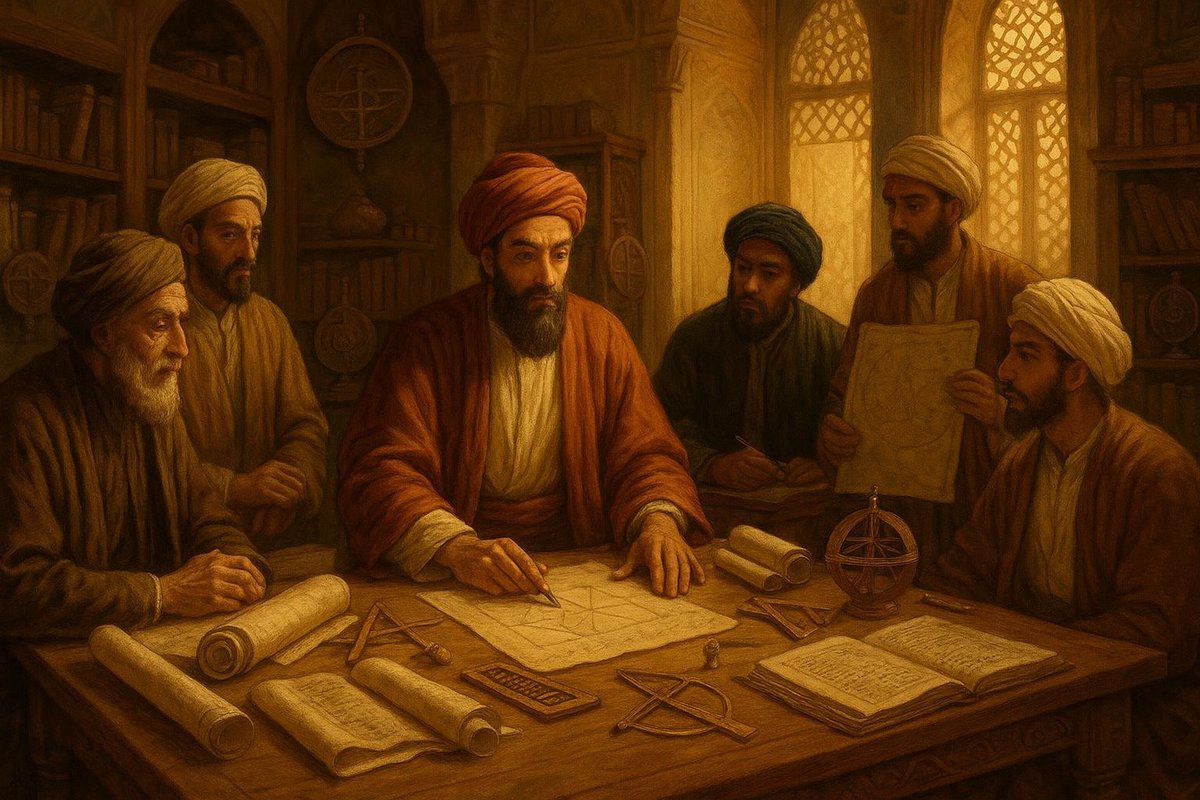
In an era when mathematical concepts were largely confined to the practical needs of commerce and navigation, the emergence of algebra signaled a profound shift. Imagine a time when mathematics lacked the universal language of equations and variables we use today. It was in this fertile ground that algebra took root, fundamentally altering the landscape of mathematical thought.
The Origins of Algebra: A Quest for Structure
The word ‘algebra’ itself traces back to the Arabic term al-jabr, which means ‘reunion of broken parts’. This term was first coined by the Persian mathematician Al-Khwarizmi in his seminal work Al-Kitab al-Mukhtasar fi Hisab al-Jabr wal-Muqabala in the 9th century.
- Al-Khwarizmi’s work laid the groundwork for systematic problem-solving beyond arithmetic.
- His methods offered a new framework for addressing complex mathematical problems.
- Algebra introduced abstraction into mathematics by allowing variables to represent numbers.
Interestingly, the societal context of the Islamic Golden Age made this intellectual leap possible. During this period, the Abbasid Caliphate fostered a culture of learning and scholarship by establishing institutions like the House of Wisdom in Baghdad. These centers of learning were not just academic havens; they were the melting pots where ideas from Greece, India, and Persia converged, giving algebra the cultural and intellectual nutrients to flourish.
Key Figures in the Spread of Algebra
While Al-Khwarizmi is often credited with the foundational text of algebra, the story of its spread involves a rich tapestry of scholars and educators.
- In the 12th century, the translation of Arabic texts into Latin brought these ideas to Europe.
- The work of Italian scholar Fibonacci, famed for the Fibonacci sequence, was instrumental in familiarizing Europe with these concepts.
- In the Renaissance, mathematicians like Cardano and Tartaglia pushed algebra further by solving cubic and quartic equations.
No wonder the spread of algebra was intertwined with the rise of educational institutions. Universities and academies provided a structure for teaching and disseminating this new knowledge. As time went on, algebra became a central part of the curriculum, reflecting its growing importance in both theoretical and applied sciences.
The Turning Point: Algebra in the Renaissance
The Renaissance was a period of rediscovery, a time when ancient texts were studied with zeal across Europe. It was during this time that algebra took a significant leap forward.
- The invention of printing allowed algebraic texts to be widely distributed, accelerating learning and innovation.
- Mathematicians began to see algebra as a tool for scientific discovery rather than just a means to solve calculations.
- Algebra’s newfound role in navigation and astronomy demonstrated its practical applications.
This period marked a turning point as algebra transitioned from an intellectual curiosity to a practical necessity. The establishment of institutions like the University of Bologna and the University of Paris created environments where scholars could debate and refine these ideas, leading to the algebraic formalism we recognize today.
The Impact of Algebra on the World
Algebra’s impact extends far beyond the realm of mathematics; it has influenced science, engineering, and even philosophy.
- It provided the tools needed for the scientific revolution, enabling the formulation of physical laws.
- In engineering, algebraic methods are fundamental to understanding and designing complex systems.
- It has informed philosophical debates about the nature of abstraction and reality.
Of course, the institutional support of universities and academies was crucial in cementing algebra’s role in education. Today, algebra is a staple in curricula worldwide, a testament to its enduring relevance. It serves as a bridge connecting various fields of study, a universal language that allows us to decode the complexities of the natural world.
In conclusion, the discovery and development of algebra were not merely academic achievements; they were milestones that altered the course of human thought. Algebra’s journey from the hands of Al-Khwarizmi to its current place at the heart of modern science and technology underscores the power of education and intellectual curiosity.
Fuel Someone Else’s Curiosity
Do you find the history of algebra as fascinating as we do? Share this article with friends or colleagues who appreciate the profound impact of mathematics on our world. Let’s continue to fuel the curiosity that drives discovery and innovation!

Leave a Reply